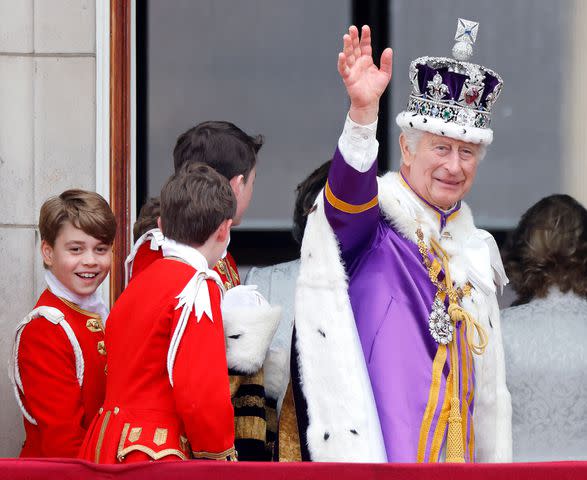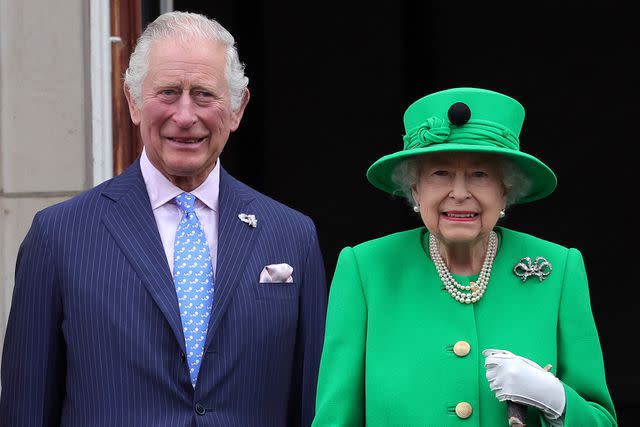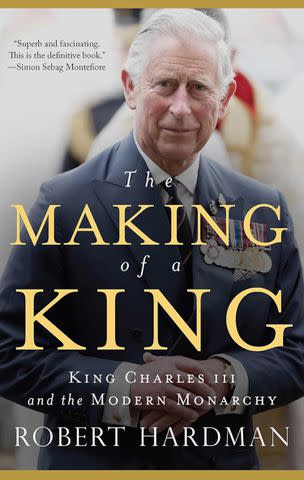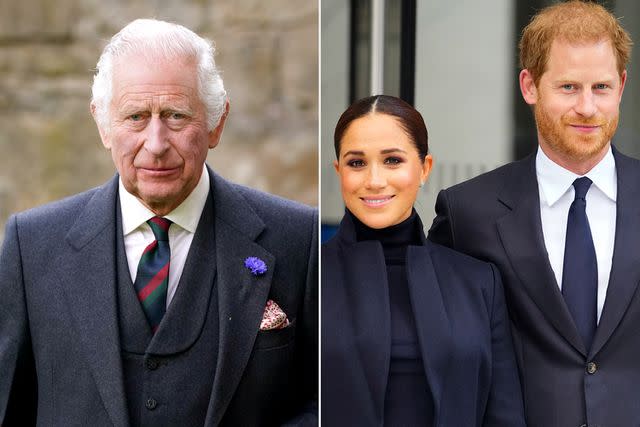King Charles Wasn't in a 'Hurry' to Be Monarch, as Depicted in “The Crown”, Says Biographer
"He was not elbowing his way in," author Robert Hardman, whose new book 'The Making of a King: Charles III and the Modern Monarchy' is out this week, tells PEOPLE

BEN STANSALL/POOL/AFP via Getty Images
King Charles IIIWhen he was heir to the throne, King Charles was often portrayed as a man impatient to take over for his mother Queen Elizabeth and become monarch. The notion was even a plot line in the most recent series of Netflix's hit The Crown. Yet biographer Robert Hardman, who has had unrivaled access to palace aides and friends of Charles for his new book, says this was overblown.
“He definitely had his own views on how he wanted to run the operation. But this idea that he was impatient to get his hands on it didn't occur to him,” Hardman, whose book The Making of a King: King Charles III and the Modern Monarchy is out this week, tells PEOPLE exclusively.
The author continues, "I don't think people have possibly quite understood that he is a sort of spiritual person. And there's a sort of fatalism there. It's more like, 'Well, the day will come and when it comes, I'll deal with this, but I'm not in a hurry.' "

Max Mumby/Indigo/Getty
King Charles, with his grandson Prince George, at the coronation on May 6, 2023Related: Why Queen Camilla's Family Nicknamed Her ‘Lorraine’ (King Charles Didn't Like It!)
Hardman tells PEOPLE, “He had his way of operating and he had his organizations and his charities, and there wasn't a great rush to suddenly seize control."
The writer says that a perfect opportunity for King Charles, 75, to have come to the fore and muscle his way to more prominence would have been during the COVID-19 pandemic when the late Queen Elizabeth stayed at Windsor Castle and rarely undertook public duties for several months.
"That could easily have been a moment for him to sort of take more of the limelight had he wanted to. But at no point was the Queen's authority being questioned right up to the end," Hardman says.

Chris Jackson/Getty
King Charles and Queen Elizabeth at the Platinum Jubilee Pageant in June 2022“People could have been saying, 'Oh, she's not well, we haven't seen her for weeks. It's time for her to hand things on.' If his people wanted to whip up a bit of a campaign, like a plot line in The Crown showing the sort of fidgety, impatient, radical prince, it would've come through," Hardman says. "We'd have picked it up. But we didn't because it wasn't true."
Another theme in biographies of both King Charles and his late mother Queen Elizabeth was that they had a distant relationship. It's true that Queen Elizabeth and Prince Philip didn't spend as much time with their eldest son as modern parents would have done, and — in later years — didn’t always understand his more forward-thinking philosophies and ideas to modernize the monarchy. However, "The Crown magnified the sense of detachment to an almost ludicrous extent,” Hardman says.

Pegasus Books
The mother and son became closer over the latter years of Queen Elizabeth’s life.
"What definitely happened over a longer period than perhaps people realized — certainly over a sort of eight to 10-year period — was he did get closer to the Queen because he was doing more and more things on her behalf. And they were acting in tandem on quite a lot of things," Hardman says.
The royal author adds that decisions had to be made jointly on long-term plans for the royal estates, for example, and some of the fractures that hit the family in the last years of Queen Elizabeth’s life united them.
Can't get enough of PEOPLE's Royals coverage? Sign up for our free Royals newsletter to get the latest updates on Kate Middleton, Meghan Markle and more!

Andrew Milligan - WPA Pool/Getty; Gotham/GC
King Charles and Meghan Markle and Prince HarryMeghan Markle and Prince Harry's step back from being working members of the royal family “brought them closer together,” Hardman says. Meanwhile, Charles "took a leadership role" when Prince Andrew's connections to convicted sex offender Jeffrey Epstein led to him leaving royal duties.
Hardman adds, "He was stepping in for her at pretty much every level, particularly overseas travel, meeting world leaders, doing investitures, and just generally being around — but crucially, he was not elbowing his way in.”
For more People news, make sure to sign up for our newsletter!
Read the original article on People.


